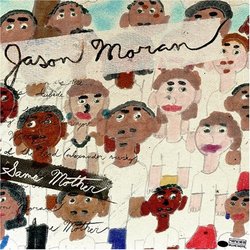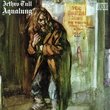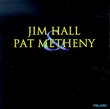| All Artists: Jason Moran Title: Same Mother Members Wishing: 1 Total Copies: 0 Label: Blue Note Records Release Date: 2/1/2005 Genres: Blues, Jazz, Pop Styles: Electric Blues, Acoustic Blues, Modern Blues, Avant Garde & Free Jazz, Modern Postbebop, Bebop Number of Discs: 1 SwapaCD Credits: 1 UPCs: 724357178020, 724357178129 |
Search - Jason Moran :: Same Mother
 | Jason Moran Same Mother Genres: Blues, Jazz, Pop
|
Larger Image |
CD DetailsSimilarly Requested CDs
|
CD ReviewsSo talented it's disgusting Jan P. Dennis | Monument, CO USA | 02/20/2005 (5 out of 5 stars) "I can see why a lot of folks struggle with this one. It's loud (mostly). And irreverent, if not outright bizarre. And kinda THICK sounding, as if the mix isn't quite right. And even sorta scatterbrained, in an odd way. Plus, the vibe's a little difficult to lock into. Those were my first impressions. And I generally trust first impressions. But since I have so much respect for Mr. Moran, I decided to set the disc aside for a while and see when I came back to it if I'd somehow in the meantime figured out what was going on. Well, I'm not sure I've completely done that, but I've got a few ideas. First off, if this is a blues album, it's one of the strangest ones ever released. Containing at the most three authentic blues numbers, it rather scopes out lots of sentiments and sensibilities akin to but not really blues. Plus, there's a rather striking and firmly rooted classical thing going on. Second, no matter what anyone says to the contrary, Marvin Sewell, a longtime favorite of mine and a practically criminally neglected guitarist, plays his butt off. Third, the leader is in finest fettle both from a playing standpoint and compositionally. The blues contained herein--"Jump Up" and "I'll Play the Blues for You"--are so good it's scary, especially the latter, which evokes huge waves of badness, fueled equally by Sewell's electrifying guitar statements and Moran's crazily apropos pianisms: Roadhouse blues on steroids. Several other numbers ("Fire Waltz" by that blues-drenched piano maestro, Mal Waldron; "Restin'," almost but not quite a down-and-dirty country blues, with as much nostalgia and jest plain trouble as Townes Van Zandt meets Mississippi John Hurt; and "The Field," dripping distress and age-old injury) flirt with the blues while operating substantially in related but ancillary sonic and emotive venues. Special mention should be made of the "Gangsterism" numbers bookending the performance. I'm thinking they're largely responsible for many listeners' ambivalence toward this disc. Both feature disturbing low-end pianisms, gnarly raucousness, and that muddily annoying mix. And yet, as much as any of the other performances, they define this disc's vibe, for better or worse. I admit they were the most difficult pieces for me (and, probably, lots of other listeners) to track with. Thus, they represent artistic integrity of the first order. Surely, someone as savvy (despite his tender years) as Jason Moran knows full well the risk he's taking placing these sonic anomalies front-and-center. Yet, that he went ahead and did it anyway, not only displays outsize Conejos but chutzpah above and beyond the call of duty. All in all, this is a MONSTER disc, vaulting the leader and his empathetic band into the very front ranks of modern jazz." Jason Moran plays the Blues Troy Collins | Lancaster, PA United States | 02/02/2005 (4 out of 5 stars) ""Same Mother" has been touted as Jason Moran's Blues album, and so it is. But the key factor here is that it is Jason Moran's Blues album. Meaning, for those unfamiliar with Moran's all-encompassing take on tradition, that it is as far reaching as it is cohesive. From mournful solo excursions, to full on Electric Blues workouts, Moran gives us his take on the Blues, and they are a varied lot to be sure.
Augmenting his regular trio is criminally under-recorded guitarist Marvin Sewell. Heard previously with Cassandra Wilson, Jack Dejohnette, Gary Thomas and Tom Schmidt, Sewell is a multifarious talent. Capable of Frisellian styled Americana, but not limited by it, he adds interesting layers of sound to the trio. From the raucous free-form electric Chicago styled Blues riffing of "Jump Up" to the epic ascending solemnity of Prokofiev's "Field of the Dead (Alexander Nevsky)", Moran and company find the Blues just about everywhere. The abstract "G Suit Saltation," as deconstructed a Blues as one can find in the post-bop idiom, invokes Jack Dejohnette's late 1970's electro-acoustic groups, while their cover of Albert King's "I'll Play The Blues For You" builds from traditionally reverential to impassioned. Their initially deconstructed take on Mal Waldron's "Fire Waltz" also builds to a rousing finish. Moran takes a few solo turns here, and there is a sparse pastoral quality to a number of the albums tracks, offset by more energetic pieces to create a well rounded exploration of the tradition known as the Blues. The album is book-ended by Moran's now de rigeur variations on his own "Gangsterism on ..." series, with both versions a raucous and stomping call and response take on this now familiar theme. Despite the seemingly programmatic device of recording a "Blues" album, Moran and company have recorded what may be one of the most interestingly conceptual instrumental blues records in recent memory. " |

 Track Listings (10) - Disc #1
Track Listings (10) - Disc #1








